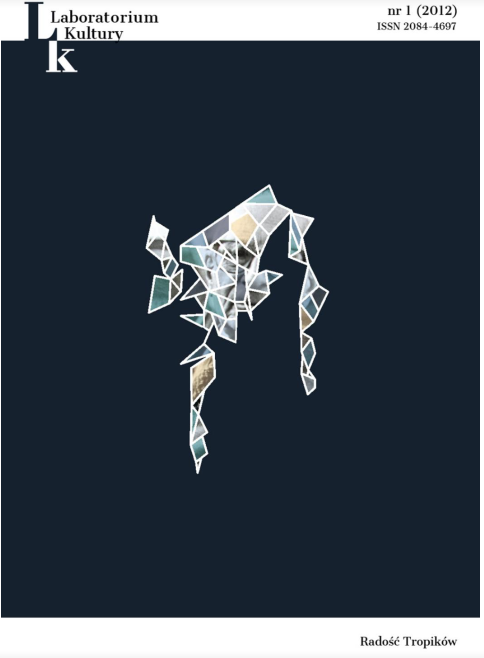Syndrom Don Kichota. „Smutek tropików” lub walka z wiatrakami
Don Quixote Syndrome. "Tristes Tropiques" or tilting at windmills
Author(s): Adam PisarekSubject(s): Anthropology
Published by: grupakulturalna.pl
Keywords: Laboratorium Kultury; Claude Lévi-Strauss; conditions of ethnographic knowledge; Don Kichot;
Summary/Abstract: A starting point of this article is a trace which is a huge intellectual challenge for everybody that reads the French structuralist and wants to understand his creation. In an extended interview Conversations with Claude Lévi-Strauss, he reveals the key to his soul saying that his mind is led by Don Quixote. After such a clear declaration, the interpretative perspective of Tristes Tropique – where a knight-errant evolves into one of the fundamental figures – becomes obvious. Eventually, it turns out that Don Quixote travels in order to influence the surrounding reality actively. In his mind, the reflection of past overlays the presence and impels him to act, ignores the boundaries. Because of that he becomes a madman. Lévi-Strauss travels In order to move back In time. An etnographer role excuses this eccentric undertaking. Procedures imposed by science create the necessary distance but at the same time they become the source of non-fulfillment. The article attempts to answer a question whether Don Quixote – his thoughts and actions influence the things; whether they are a union of That What is analogical. If the answer was yes, what would be the great anthropologist’s dream, whose mind is controlled by a knight-errant?
Journal: Laboratorium Kultury
- Issue Year: 2012
- Issue No: 1
- Page Range: 56–69
- Page Count: 14
- Language: Polish

